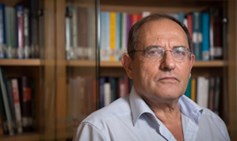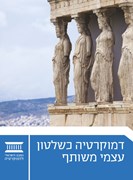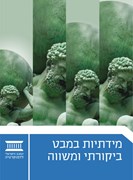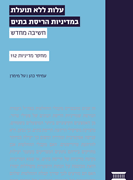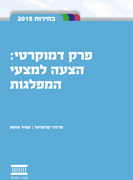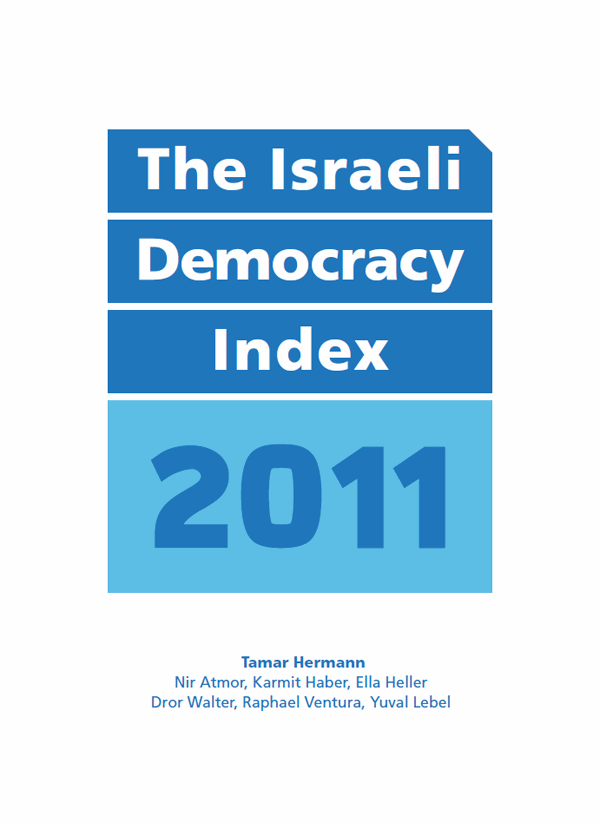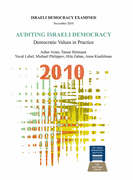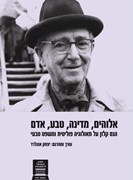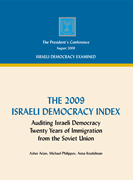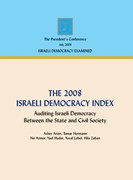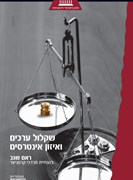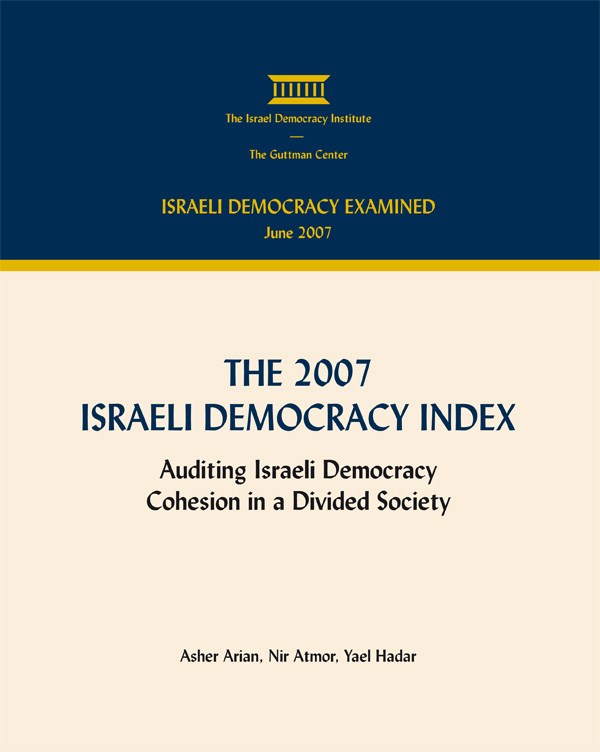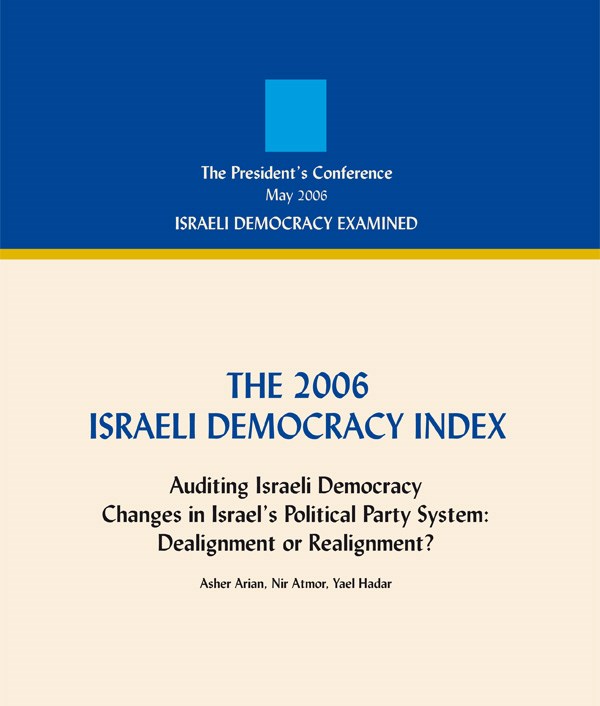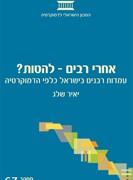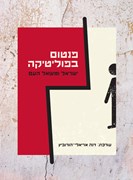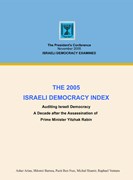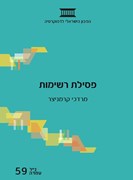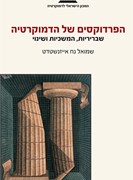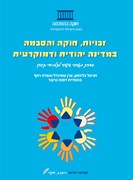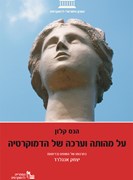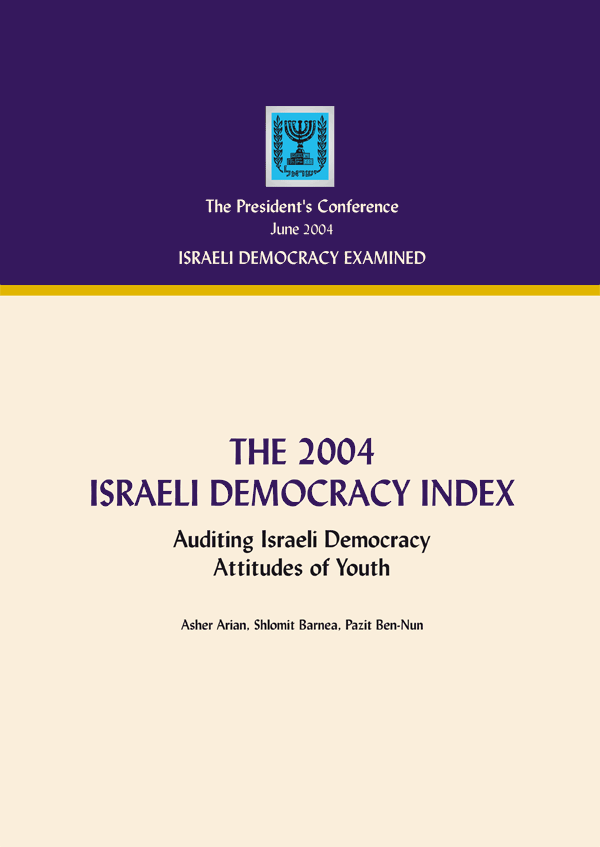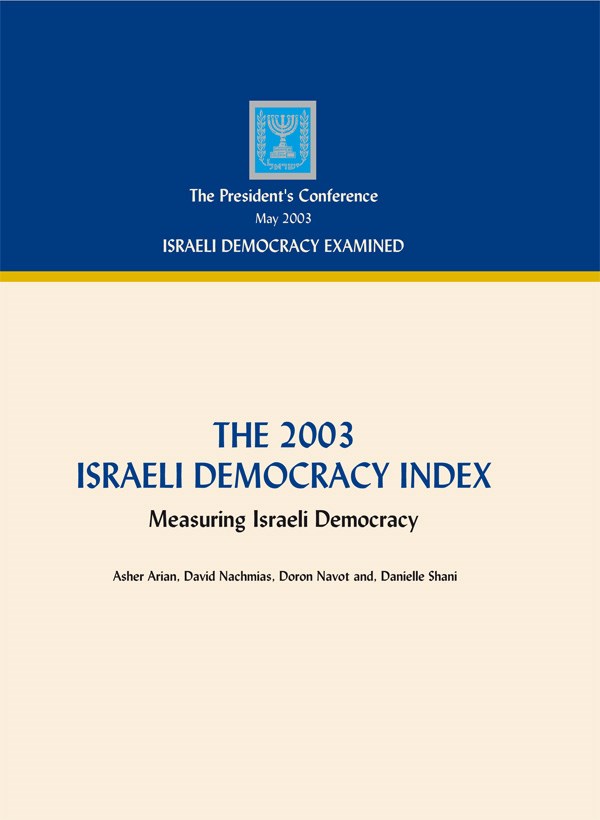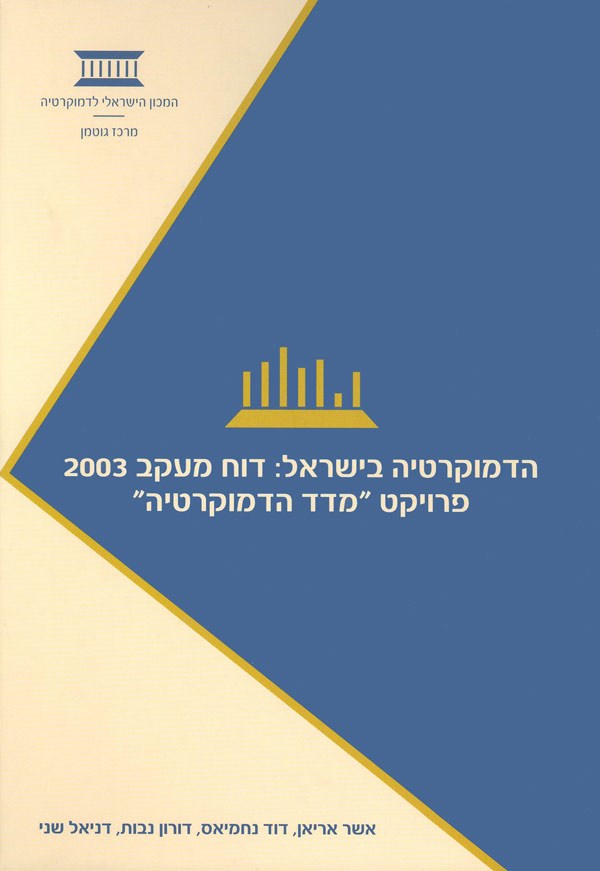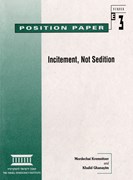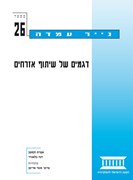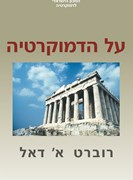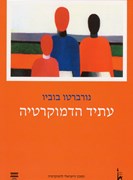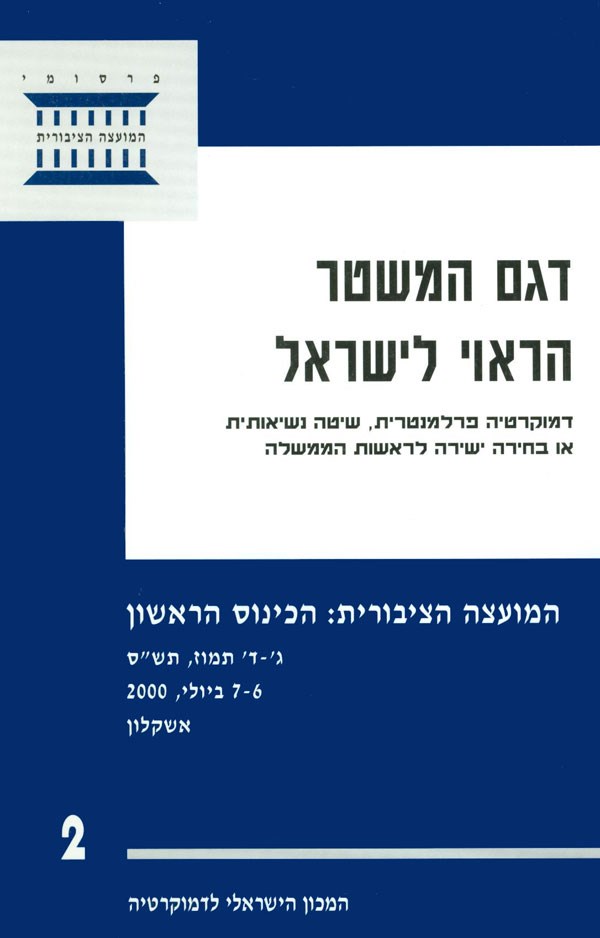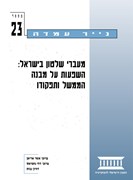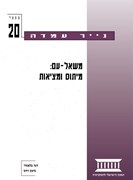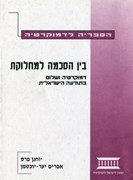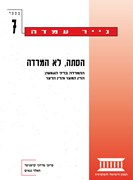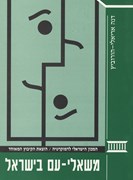

Publications Regarding democracy
Articles

Summary: Autocratization and States of Emergency in Comparative Perspective
Written By: Dr. Nadav Dagan, Adv. Daphne Benvenisty
What can we learn from South Korea, India, Hungary, Venezuela, and Turkey? Findings from a comparative study show a clear link between the use of 'states of emergency' and accelerated erosion or dismantling of democracy, and autocratic consolidation.

Lessons from Israel's Decline in the Global Corruption Index
Written By: Adv. Edna Harel Fisher, Dr. Natan Milikowsky
Israel's decline in the 2025 Corruption Perceptions Index, though moderate as of now, points to a concerning trend, especially taken together with recent IDI survey findings on the topic. But steps can be taken to restore norms and strengthen institutions that combat corruption.

Reuven Rivlin with Prof. Suzie Navot at the Annual Shared Society Conference 2025
Written By: Prof. Suzie Navot
Former President Reuven Rivlin, IDI's Honorary Chair and Joan and Irwin Jacobs Distinguished Fellow, joined IDI's Vice President for Research Prof. Suzie Navot at the annual Shared Society Conference for a conversation on political polarization, the urgent need for genuine constitutional reform, and what it truly means to uphold the principles of a democratic and Jewish state.

A Review of the Moves Designed to Weaken Israeli Democracy: Working Document
Written By: Adv. Anat Thon Ashkenazy, Adv. Daphne Benvenisty
Knesset Summer Session: April 2025 to July 24, 2025

The Polish Precedent for Preventing the Attorney General from Entering Her Office
Written By: Adv. Daphne Benvenisty
The Israeli Minister of Justice ordered the locks changed at the Tel Aviv office shared by the Attorney General, an action that blatantly violates the Supreme Court’s interim order prohibiting the dismissal of the Attorney General and any changes to the working arrangements between the government and the Attorney General.

The Hidden Lesson of Israel's Iran Victory
Written By: Yohanan Plesner
Israel’s victory over Iran was not just a triumph of military strategy—it was a testament to democracy and moral clarity. In a region plagued by autocracy, it is Israel’s enduring commitment to freedom, pluralism, and the rule of law that gives it the resilience and strength to prevail.

Some No Longer Believe the Prime Minister Can Violate the Rule of Law - He Is the Law
Written By: Adv. Anat Thon Ashkenazy
When loyalty to the Prime Minister is seen as loyalty to the law itself, Israel risks replacing democracy with rule by decree—undermining the very foundations of the rule of law.

Chaos in the Courtroom, Clarity on the Bench
Written By: Prof. Suzie Navot
Everything you need to know about yesterday's High Court hearing on Netanyahu's efforts to fire Shin Bet Director Ronen Bar went.

Politicization of the Shin Bet is Dangerous to Israel's Security and the Rights of Israelis
Written By: Dr. Eran Shamir-Borer, Prof. Amichai Cohen
Maintaining the Shin Bet’s independence from political influence is essential to preserving both Israel’s national security and the democratic rights of its citizens.

The Government Against the Rule of Law
Written By: Dr. Guy Lurie
The Israeli government's current efforts to dismiss the head of the director of the Shin Bet and the Attorney General, alongside its attempt to restructure the Judicial Selection Committee, reflect a broader shift toward subordinating legal and security institutions to political authority, raising concerns about the erosion of the rule of law and the future of democratic governance in Israel.

Ministers Levin and Saar's Proposed Changes to the Judicial Selection Committee
Written By: Dr. Guy Lurie
Justice Minister Yariv Levin and Foreign Minister Gideon Sa’ar presented their proposed changes to the composition of the Judicial Selection Committee (JSC) as a compromise aimed at achieving a gradual change in the judicial selection process, but many constitutional experts worry that the plan will have dire consequences resulting in the politicization of Israel’s judicial selection process.

Five Lessons from South Korea: On Democracy, Liberty and States of Emergency
Written By: Dr. Nadav Dagan
When South Korean President Yoon Suk Yeol, who previously praised liberal democracy, declared martial law, a swift and decisive response from the general public, and subsequently parliament, thwarted the move within hours. These events illustrate that in order to increase the chances of recovery and inoculation against democratic backsliding, democratic institutions must be strengthened.

The Two Coalitions Israel Needs Now
Written By: Yohanan Plesner
It is increasingly clear that Israel’s future depends on the forging of two coalitions. One is a multinational alliance determined to turn the Palestinian issue from a driver of conflict into an engine of peace. The other, is an internal Israeli coalition ready to pursue a series of bold social, economic, and political reforms.

Constitutional Crisis – Definitions, Precedents, Implications
Written By: Dr. Amir Fuchs, Adv. Daphne Benvenisty, Dr. Nadav Dagan
Recently, Israel has faced a number of situations that could lead to a constitutional crisis. What is a constitutional crisis and why is it dangerous for the stability of democracy? IDI experts explain.

October 7 and 9/11, As Taught In Classrooms
Written By: Dr. Tammy Hoffman
The connection between October 7th and September 11th are not just in the magnitude of the tragedy and their ongoing global impact, but in the messaging and paradigms introduced into the educational system, as it attempts to tackle this fateful event. The education system has a critical role to play in allowing society to deal constructively with the consequences of the current war.
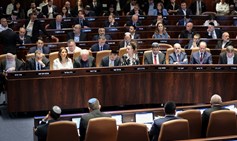
The Judicial Overhaul and Anti-Democratic Initiatives
Written By: Adv. Anat Thon Ashkenazy, Adv. Daphne Benvenisty
Judicial overhaul initiatives, along with other anti-democratic measures, have continued to be promoted by the government and the coalition in the Knesset. This document outlines the various actions taken in government that weaken the Israeli judiciary and democracy at large.
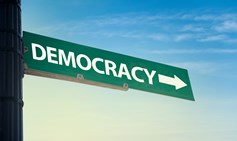
Continue to Stand Guard: Israel's Decline in Global Democracy Metrics is Troubling, but Not Catastrophic
Written By: Dr. Assaf Shapira
V-Dem's latest report downgraded Israel's status from a "liberal democracy" to an "electoral democracy." The change in Israel's category is concerning, but on its own, it does not necessarily indicate a clear democratic decline.
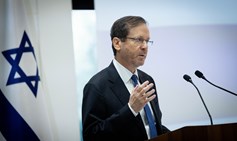
Despite the Criticism, the Public’s Confidence in the President of Israel Has Increased—Evidence of a Yearning for Nonpartisanship in a Tumultuous Time
Written By: Dr. Dana Blander
What has produced the rise in the President’s confidence rating? One explanation is the public’s yearning for nonpartisanship in a time of crisis.

Can There Be Education without Democracy?
Written By: Dr. Tammy Hoffman
Education can exist without democracy - however democracy cannot exist without education for democracy

Israel is Still a Free Country – But Now With a Warning Sign
Written By: Dr. Assaf Shapira
A top democracy index hasn't yet ranked Israel with Hungary. That will change if the majority becomes all powerful

Government of the people means government of ALL the people
Written By: Prof. Gideon Rahat
The current battle in Israel is not between left and right. It is being waged between those who embrace democracy and those who want to make one last use of democracy to institute majority rule.

Education. For Democracy. Now.
Written By: Dr. Tammy Hoffman
The education system must cultivate political and civic literacy of today’s pupils and tomorrow’s citizens

Israel’s Unique Challenges Require a Strong Leader
Written By: Prof. Tamar Hermann, Dr. Or Anabi
53% of Israelis agree or strongly agree that dealing with Israel’s special problems requires a strong leader who will not worry about the Knesset, the media or public opinion.
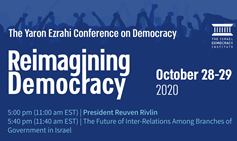
Reimagining Democracy Highlights
The Israel Democracy Institute held the first day of the inaugural "Reimagining Democracy" conference - in commemoration of the late Prof. Yaron Ezrahi. The sessions focused on the future of the relationship between the branches of government and the increasing tension between them.
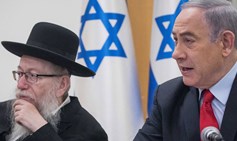
Israel's Democracy in the Time of Corona
Written By: Yohanan Plesner , Prof. Yuval Shany, Prof. Karnit Flug
IDI's management convened an online 'town hall' with Yohanan Plesner, Yuval Shany, Karnit Flug and Jesse Ferris to discuss the political, constitutional and economic fallout from the corona crisis, and IDI’s unique role in addressing it.
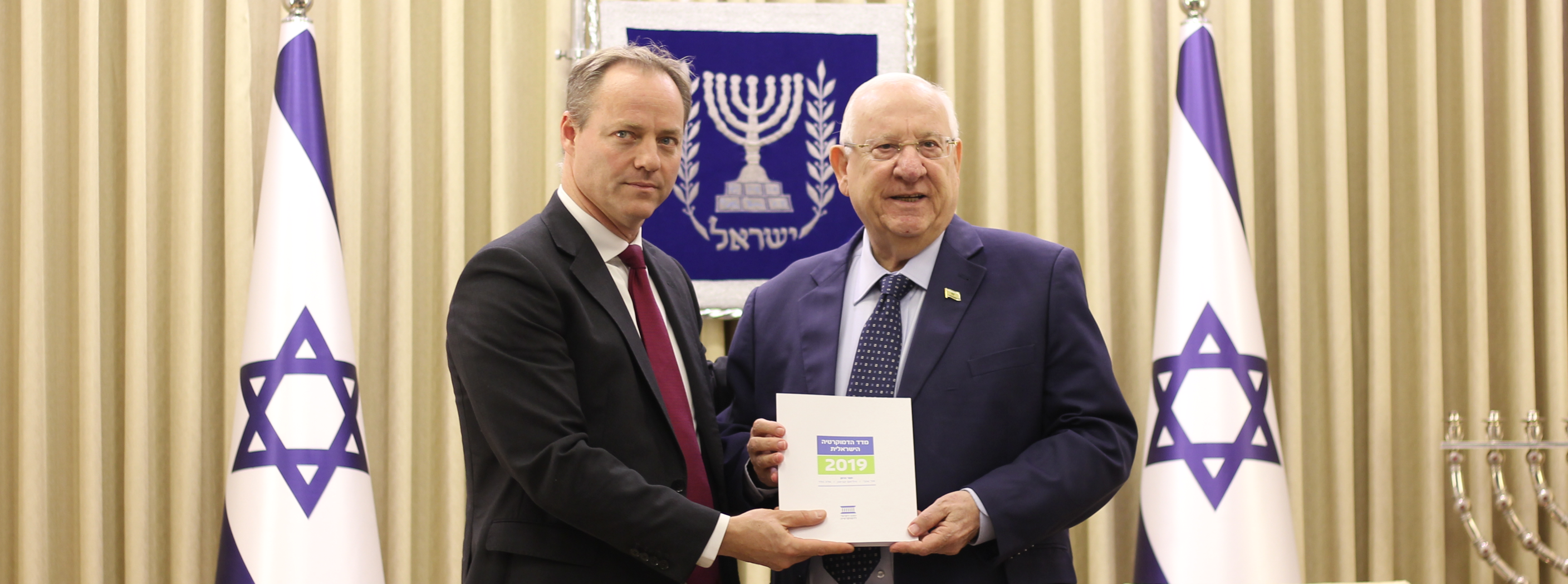
IDI Releases 2019 Democracy Index
Written By: Prof. Tamar Hermann, Dr. Or Anabi, Dr. William Cubbison, Ella Heller
50% of Israelis Believe that the State of the Country is 'Good'. Conversely: 58% of Israelis Believe that Their Leadership is Corrupt and 59% of Israelis Think that Supreme Court Judges’ Rulings are Politically Biased
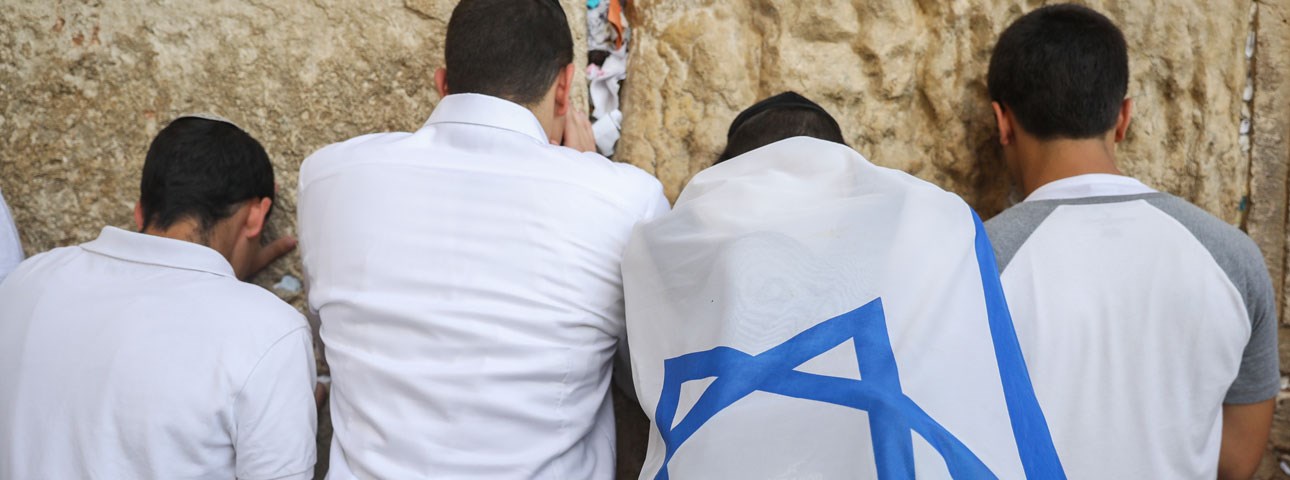
Jewish or Democratic? We Mustn’t Choose Between Them
Written By: Dr. Shuki Friedman
Recent elections have brought to fore the struggle between religion and state - the balance between the constitutional elecemtns and the place of religion. In this tug-of-war, a compromise can be the only victory.
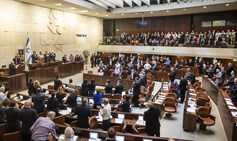
Democracy: Rule of the People?
Written By: Prof. Yuval Shany
The recent wave of populism forces us to sharpen our understanding of the literal meaning of 'democracy' and 'the rule of the people' as well as the accepted definition of liberal democracy
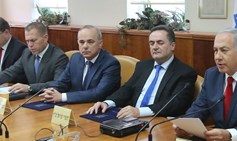
Toward Tyranny of the Majority
Written By: Dr. Amir Fuchs
Granting the government additional power, which will enable overriding Basic Laws in simple legislation must not be allowed, lest the defense of basic civil rights in Israel are compromised
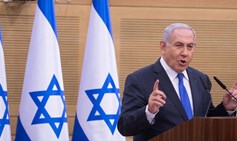
We the People: Democracy in the Age of Populism
Written By: Prof. Yuval Shany
Populism means different things to different people – and political populism has an even more sinister meaning

Legal Ramifications if Israel Decided to Annex the West Bank
Written By: Prof. Yuval Shany
Annexation would result in a continuous state of affairs in which two sets of laws apply to two adjacent populations and would undermine Israel’s democracy

Israel at 71
Written By: Dr. William Cubbison
On May 9th Israel will celebrate Independence Day, the 71st anniversary of the founding of the State of Israel. What do Israelis think about the state of the country at the age of 71?

The Democracy Pavilion
The Democracy Pavilion, a unique multi-media experience, in full 360 degree technology, showcasing the values embedded in Israel’s Declaration of Independence, will open to the public on Independence Day.

Whatever Happened to the Likud's Liberal Values?
Written By: Dr. Amir Fuchs
Dr. Amir Fuchs looks at how far removed today’s Likud is from the Likud of yesteryear, both in terms of personalities and ideologies

Special Elections Survey
Written By: Prof. Tamar Hermann, Dr. Or Anabi
The Jewish public is divided over the question whether the prime minister should resign if indicted by the Attorney General, pending a hearing; 52% of the Jewish public believes that Israelis living abroad should also have the right to vote
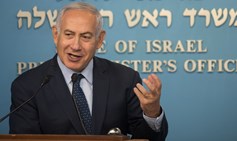
The Illusion of Political Stability
Written By: Prof. Ofer Kenig
Despite a solid decade with the same prime minister, other cabinet posts have switched hands at alarming rates.
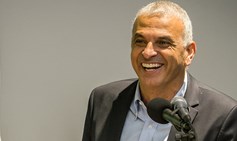
The Constitutional Tug of War in the Outgoing Coalition
Written By: Dr. Amir Fuchs
The 20th Knesset was the most injurious of all with regard to democratic values, freedom of expression, gatekeeping and, above all, minority rights. In the next government we can only hope that someone will champion liberal center-right values to continue to protect our democracy.
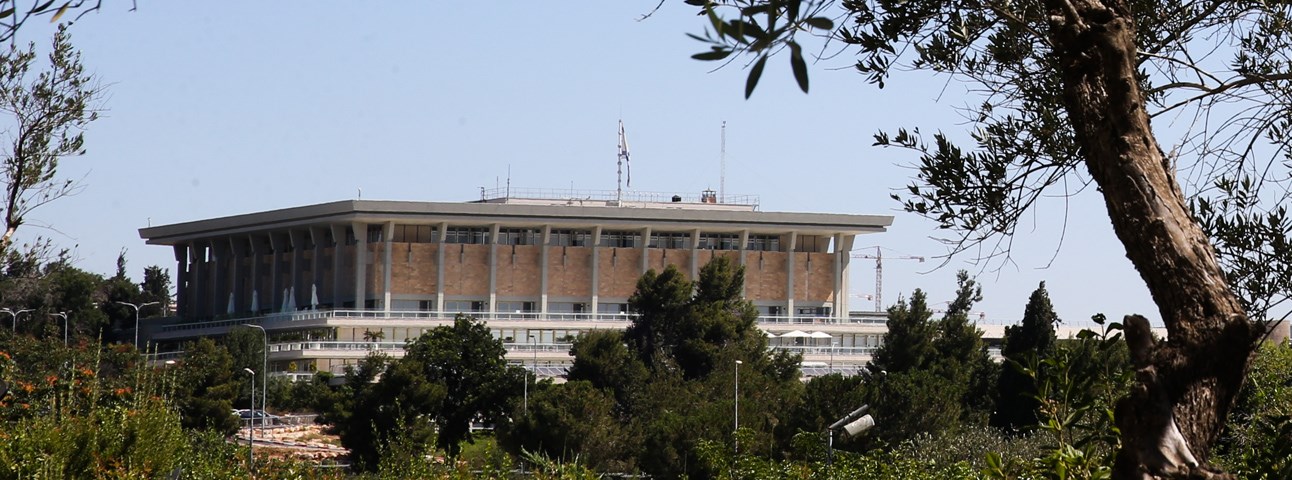
Israeli Democracy at 70
Written By: Adv. Alona Vinograd
Israel at 70 is still a thriving democracy, but current concerns are justified, says Alona Vinograd in an interview to Fathom.
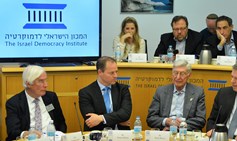
Strengthening Jewish Unity by Strengthening Israeli Democracy
Written By: Yohanan Plesner
As Israel enters its eighth decade, Yohanan Plesner, President of the Israel Democracy Institute, reflects on the delicate balance between the state’s two dominant characteristics – Jewish and democratic – which has never been more contested.
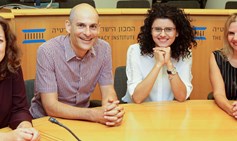
Meet the Next Generation of IDI Leaders
Written By: Rachel Cohen, Adv. Alona Vinograd, Dr. Nasreen Haddad Haj-Yahya, Daphna Aviram-Nitzan, Dr. Gilad Malach
Guaranteeing an independent Supreme Court. Integrating the Ultra-Orthodox into the IDF. Boosting participation of Arab women in the workforce. Improving the ease of doing business in Israel. These are some of the challenges facing IDI’s new cadre of program and center directors.

Supporting the LGBTQ's Struggle for Equality
The Israel Democracy Institute’s management announced its support for the LGBTQ’s struggle to amend the newly passed Surrogacy Law so as to included gay couples.

The Nation State Bill is a Constitutional Abandonment of Diaspora Jewry
Written By: Dr. Shuki Friedman
This bill is superfluous and will do far more harm than good. In its newly revised version, the Nation-State Bill, which has been problematic since its inception, reaches new lows by effectively abandoning Diaspora Jewry.
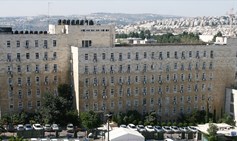
The Attack on Legal Oversight Threatens Us All
Written By: Prof. Yedidia Z. Stern
Government-sponsored legislation proposing to change how ministry legal advisors are appointed has stirred up quite a storm. The idea should worry all of us, not only jurists.

On Political Appointments of Legal Advisers in Government Ministries
Written By: Yohanan Plesner , Prof. Yuval Shany, Prof. Yedidia Z. Stern
The Israel Democracy Institute ahead of the Knesset Constitution Committee debate on political appointments of legal advisers in government ministries: "A blow to the civil service ethos; an opening for potential corruption, forsakes public interest".
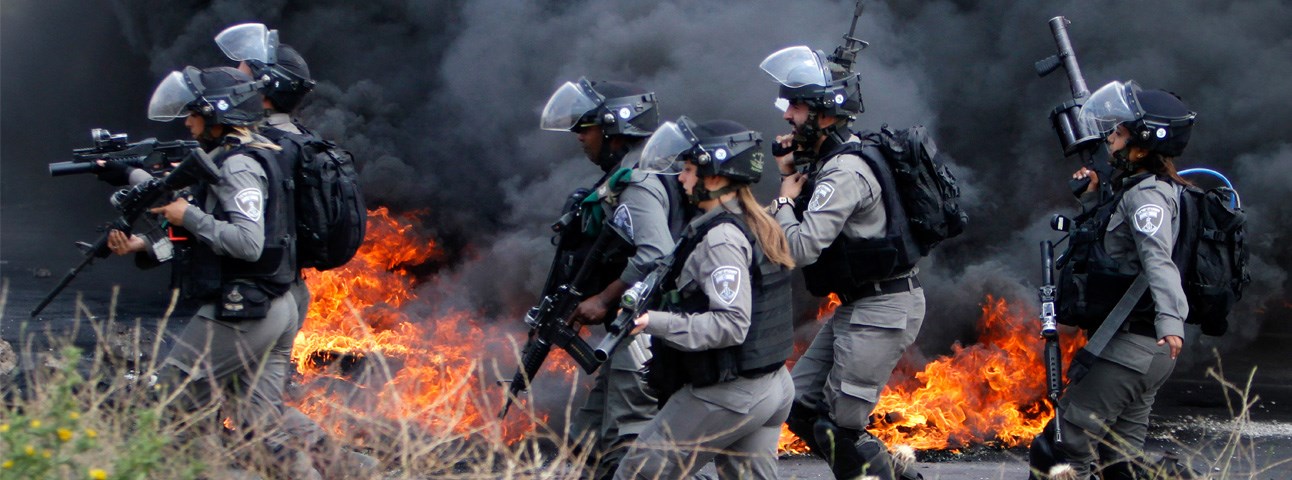
Will Israel go to war in the coming months?
Written By: Prof. Tamar Hermann, Prof. Ephraim Yaar
The monthly Peace Index of the Israel Democracy Institute and Tel Aviv University, published today, finds that the Israeli public split on prospect of war in the coming months

Watch the Construction of the Democracy Pavilion in 60 Seconds
Ron Huldai, Mayor of Tel Aviv-Yafo Municipality: "The establishment of the Democracy Pavilion is an impressive demonstration of Israeli democracy. Only in a democratic society can freedom and tolerance co-exist. This is what allows the opposing sectors of Israeli society to live side by side." The Democracy Pavilion is located at the start of the Independence Trail in Tel Aviv and is open to the public free of charge.

The Democracy Pavilion
After months of preparation, we are proud to inaugurate, along with the Tel-Aviv-Yafo Municipality, the Democracy Pavilion, celebrating 70 years of Israel’s independence. A unique multi-media experience, in full 360-degree technology, showcasing the values embedded in Israel’s Declaration of Independence and the historic highlights of 70 years of independence.

A Sting in 68 Likes
Written By: Dr. Rachel Aridor-Hershkovitz
When we use social networks, search engines or other online services on our computers or smartphones, we leave behind a long digital trail. The Facebook and Cambridge Analytica scandal should serve as a wake-up call to us all as to the implications.
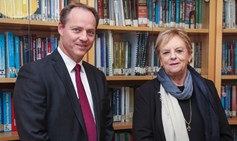
Fertile Ground for Growth: The Jewish State’s Balancing Act
Written By: Steve Linde
Beinisch and Plesner voice optimism about the future of Israel despite current tensions and threats to its democracy
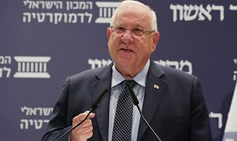
A Democracy in Flux
President Reuven Rivlin, Justice Minister Ayelet Shaked,Leader of the Israeli Labor Party Avi Gabbai and State Prosecutor Shai Nitzan relate to tensions surrounding the prime minister's investigations and the coalition crisis at a special conference held last night with Makor Rishon

IDI Presents Outstanding Parliamentarian Award to MKs Elharar and Folkman
Knesset Speaker MK Yuli Edelstein: "It's time to bring the rules of the game back to the Knesset

Privacy Matters in the Digital Age
Written By: Dr. Tehilla Shwartz Altshuler
Priavcy is a requirement for the proper functioning of any democratic society.

Time for the Start-Up Nation to Build a Start-Up Government
Written By: Dr. Tehilla Shwartz Altshuler
Earlier this year, Prime Minister Benjamin Netanyahu announced that “the time has come for the Start-Up Nation to also have a Start-Up Government.” I agree. But can it be done?
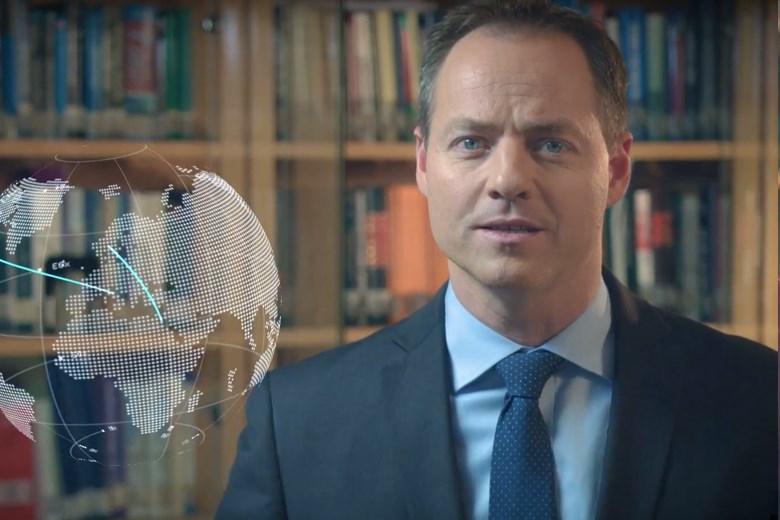
Ensuring a Vibrant Democracy
Written By: Yohanan Plesner

Innovation was the Epic Fail of 2016
Written By: Dr. Tehilla Shwartz Altshuler
In Israel, we talk a lot about innovation. But what does the term really mean?

The Hebron Shooter is not Israel’s Poster Child
Written By: Idit Shafran, Gittleman, Admiral (Res.) Amichay (Ami) Ayalon
In this op-ed IDI's Amichay Ayalon and Idit Shafran-Gittleman argue that the challenge of combatting terrorism requires security concerns to be weighed against the values of a free society. The prevailing attitude among supporters of Hebron shooter Elor Azaria of allowing the security mantra to trump any other concerns may lead to short-term military success, but will be a moral loss for Israel, both on the home front and in the international sphere. This op-ed originally appeared in Haaretz.

IDI Statement in Honor of International Day of Democracy
Israeli democracy is dealing with complicated challenges, but we are in a good place in comparison to other countries around the world
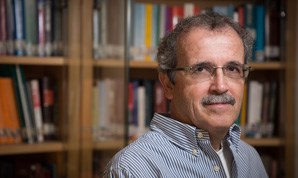
Companions on a Shared Quest
Written By: Prof. Yedidia Z. Stern
The Second Temple in Jerusalem was destroyed, as tradition has it, because of groundless hatred between Jews. IDI's Yedidia Stern takes this opportunity on Tisha B'Av to reflect on the current culture war in Israel, and urge citizens to focus on the covenant of destiny that binds us, rather than the divisions between us.

What Might Jabotinsky Say About the Actions of the 20th Knesset?
Written By: Dr. Amir Fuchs
Some 76 years ago, on August 4, Ze'ev Jabotinsky, one of the most prominent Zionist thinkers and leaders, founder and head of the Revisionist movement, Betar youth group and the Irgun paramilitary organization, died prematurely. It is interesting to explore his views on matters related to democracy and liberalism.
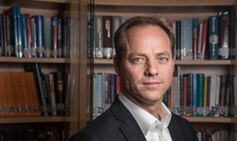
Israel’s Amazing Restraint
Written By: Yohanan Plesner
Liberal democracy is in crisis everywhere. We in Israel have our share of problems. Our democracy is far from perfect, and it is under massive pressures — both external and internal. But all in all, if we look at the world around us, Israel is doing rather well. This article was originally published by the Atlanta Jewish Times.

The Real Reason for the Turkish Coup’s Failure
Written By: Dr. Tehilla Shwartz Altshuler
Dr. Tehilla Shwartz Altshuler argues that the main reason the coup in Turkey fizzled is not because of Erdogan’s FaceTime message, but because he had been anticipating this putsch for quite a few years and had arranged the entire legal apparatus that governs the relationship between the Turkish government and the media accordingly.
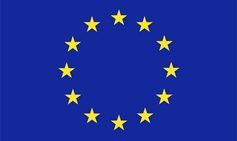
Britain's Referendum: Democracy at its Finest or Crass Populism?
Written By: Dr. Dana Blander
In Britain, nationwide referendums are a rare event. This development highlights an issue that many of today's democracies are struggling with: the ongoing tension between direct and representative democracy. Is a national referendum a shining example of the democratic ideal put to practice, or does it represents deterioration to cheap populism?

25 Events that Impacted Israeli Democracy
In honor of the 25th anniversary of the Israel Democracy Institute, we feature a list of the 25 formative events that shaped Israeli democracy.

Expand Israeli Absentee Voting Rights
Written By: Prof. Ofer Kenig
In this op-ed, which first appeared on the Times of Israel, IDI's Ofer Kenig argues that it is time to cautiously expand the right of absentee voting to more Israelis.
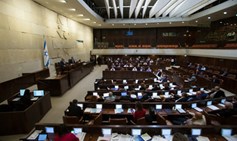
Standing Up for Democracy
Written By: Prof. Mordechai Kremnitzer
One of the most fundamental principles of democratic government is the delicate system of checks and balances that prevents the arbitrary exercise of power by the majority. Israel, the sole democracy in a dangerous and unstable neighborhood, has long been an exemplar of these checks and balances. We cannot allow Israel's democratic foundations to gradually erode. Israel’s survival and prosperity hinge, in the final analysis, on its democratic vitality.
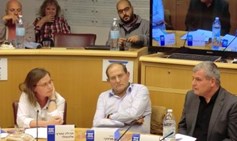
Turning Research into Action
IDI experts analyze challenges to Israel’s democratic values and institutions and work with decision-makers to implement concrete
proposals to strengthen Israeli democracy.

Legislative Solutions in Israel and America: Comparing Apples to Oranges
Written By: Dr. Amir Fuchs
The Knesset is currently considering a proposed amendment, sponsored by the Prime Minister, to Basic Law: The Knesset. It would allow a special majority of 90 Knesset members to suspend an MK for an unlimited period of time. In effect, this would be tantamount to an expulsion, with the suspended parliamentarian replaced by the next person on his or hers party’s candidates list. This article was first published by JNS.org.

Terror triage – Who comes first?
Written By: Dr. Idit Shafran Gittleman
In the aftermath of the Tel-Aviv terror attack, it is becoming increasingly clear that the current round of terror will not end soon. When there are casualties of attacks, not only do security issues arise, but so do medical issues – and these can be equally as complicated. This article originally appeared in Crescent City Jewish News.
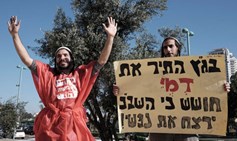
Torture Laws Must Apply To Arab And Jew Alike
Written By: Prof. Mordechai Kremnitzer
Dr. Mordechai Kremnitzer argues that it is time for Israel to examine the Shin Bet security service's regulations, based on the assumption that they apply to all residents of Israel. One law must apply to all suspected perpetrators of terrorist acts — Jews and Arabs alike.

The Israel Democracy Institute to heads of the coalition and cabinet ministers: The bill to obliterate the Supreme Court's ability to disqualify Knesset candidates is reminiscent of the Council of Guardians of Iran
Following the advancement of an amendment to a Basic Law on the issue of removing the authority of the Supreme Court to intervene in decisions of the Central Elections Committee to cancel candidates or lists from participating in elections, the Israel Democracy Institute (IDI) sent out a sharply worded policy paper opposing this proposal.

Are House Demolitions an Effective Tool in the Battle Against Terrorism?
Written By: Adv. Tal Mimran
Is demolishing terrorists' homes an effective deterrent? Israel Democracy Institute research – based on previous work conducted by the security establishment – has cast a doubt on its value. There was also a research report published in 2005 by a professional committee led by Maj. Gen. (Ret.) Udi Shani, which led to the cessation of house demolitions for three years.

IDI Experts Oppose Allowing Police to Stop and Search without Suspicion
Upholding human rights means police can only search a person when there is solid suspicion. This was the message that Israel Democracy Institute's Professor Mota Kremnitzer and Dr. Amir Fuchs delivered in a policy statement on Nov. 11.

Despite reported tensions, discrimination and intolerance, Israelis say their personal situations are good
The Israeli Democracy Institute (IDI) released the Israeli Democracy Index 2015 on Nov. 10, 2015. This year's public opinion poll, a project conducted by the Guttman Center for Surveys, found that Israeli's are more content than the news reports might make them appear.

‘Jewish and Democratic’ Even in Tough Times
Written By: Dr. Shuki Friedman
Dr. Shuki Friedman reminds us that the values that are so deeply rooted in our Jewish worldview, are part and parcel with the democratic values of our state and its outlook on the obligation to preserve life and human dignity using the rule of law.
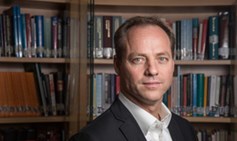
Democracy's Hatred for Hate
IDI President Yohanan Plesner writes that while democracy may be considered a fragile regime that has difficulties coping with extremism, there are still powerful means in the democratic toolbox that can and must be utilized to deal with the threats of homegrown terrorism and hatred of the "other", which can undermine Israel's character as a democratic state.
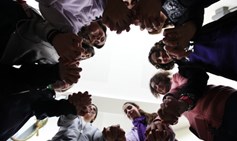
Education for Democratic Values and Combating Racism through Education
Written By: Prof. Mordechai Kremnitzer, Noam Lautman
IDI Vice President Prof. Mordechai Kremnitzer and Noam Lautman, Chairman of the Lautman Fund, recommend ways in which the Israeli educational system can strengthen democratic values, and warn that students should not be forced to choose between two competing alternatives—Israel as a nation-state or as a "state of all its citizens."
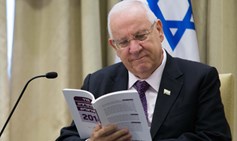
Rivlin Under Fire
Written By: Dr. Amir Fuchs
Ever since he was elected, President Reuven Rivlin has been under attack from the extreme right wing in Israel. Why should a right-wing President be under attack from the right? IDI Researcher Dr. Amir Fuchs explores the origins of the animosity towards Israel's liberal, right-wing President.
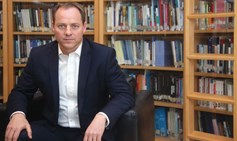
The Researched-based Responses to Troublemaking MKs
News from the Knesset in the last week raises myriad questions about democracy, and Israel Democracy Institute president Yohanan Plesner tries to provide answers.
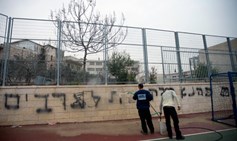
A Four-Step Plan to Combat Hatred between Jews and Arabs in Israel
Written By: Yair Sheleg
IDI Research Fellow Yair Sheleg outlines four steps that can allay fears, contribute to dialogue, combat hatred, and improve relations between Jews and Arabs in Israel

Confronting the Rabin Assassination
Written By: Prof. Mordechai Kremnitzer
Nineteen years after the murder of Prime Minister Yitzhak Rabin, IDI Vice President Prof. Mordechai Kremnitzer explores the background, meaning, and ramifications of this event, taking a hard look at some of the dangers he sees in Israeli society today.

When November 4th Meets the 12th of Heshvan
Written By: Yitzhak Ben David
Rabbi Yitzhak Ben David shares thoughts on the alignment of the Memorial Day for Yitzhak Rabin on the Gregorian and Hebrew calendars, which challenges us to find a renewed reconciliation between Israeli democracy and Jewish civilization.
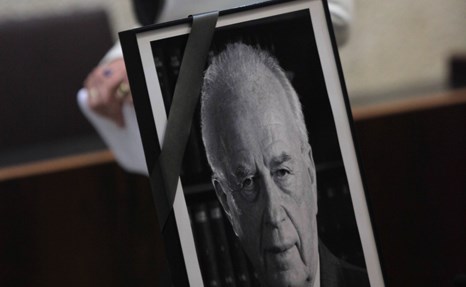
Joining Together to Remember Yitzhak Rabin
Written By: Benjamin (Benny) Lau
On the 19th anniversary of the Rabin assassination, Rabbi Dr. Benjamin (Benny) Lau, head of IDI's Human Rights and Judaism in Action project, looks at the youth of Israel and shares a vision of hope.

Israeli Democracy Day: Yitzhak Rabin's Legacy for the Future
Written By: Prof. Yedidia Z. Stern
On the 19th anniversary of the assassination of Yitzhak Rabin, Prof. Yedidia Stern asserts that if the annual memorial day for the late prime minister were to be observed as Israeli Democracy Day, Rabin's legacy for the future would be even greater.

A Social Iron Dome for Jewish-Arab Relations
Written By: Prof. Yedidia Z. Stern
In an op-ed in <em>Yedioth Ahronoth</em>, Prof. Yedidia Stern warns that the Iron Dome could not protect Israel from hatred between Jewish and Arab citizens, and stresses the need for both sides to use imaginative empathy to mend the fabric of Israel's shared society.?

Education for Democracy as a Remedy for Violence
Written By: Dr. Amir Fuchs
Attorney Amir Fuchs asserts that educating Israeli students regarding democracy and civics from a young age and throughout their education is the best way to prevent hatred, violence, and racism.

A Red Alert for Israeli Democracy
Written By: Yohanan Plesner
In the midst of Operation Protective Edge, IDI President Yohanan Plesner warns of the dangers of racism, incitement, and stifling of free speech and asserts that it is essential to internalize a substantive democratic culture.

The Presidency: The “Additional Soul” of Israeli Democracy
Written By: Reuven Rivlin
Former Speaker of the Knesset MK Reuven (Ruby) Rivlin shares his views on the importance of the institution of the Israeli presidency, as part of an exclusive IDI series of articles by the presidential candidates of 2014.

A Jewish State Warrants Our Sacrifice
Written By: Prof. Yedidia Z. Stern
IDI Vice President Prof. Yedidia Stern reflects on the privilege of sacrifice and the necessity to maintain a Jewish Israel in order to justify that sacrifice, in an article written for Remembrance Day for the Fallen of Israel's Wars and Victims of Terrorism.

Public Opinion: Is Israel Independence Day a Holiday?
Written By: Mr. Chanan Cohen
Do Jewish and Arab citizens of Israel see Yom Ha'atzmaut as a holiday? Do perceptions among Jews vary depending upon level of religiosity or position on the right-left political spectrum? Find out in this Mini-Survey from IDI's Guttman Center.
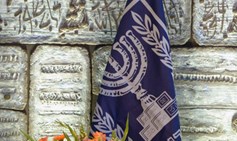
The Israeli Presidency: Unnecessary Institution or Vital Symbol?
Written By: Dr. Dana Blander
As the 2014 presidential election draws near, once again there have been calls to do away with the institution of the presidency. Is the President of Israel an unnecessary position or a vital symbol? IDI researcher Dr. Dana Blander analyzes the two sides of this question.

On Leadership and Responsibility: The Lessons of the Purim Story
Written By: Shira Ruderman, Benjamin (Benny) Lau
Rabbi Dr. Benny Lau and Shira Ruderman, Israel Director of the Ruderman Family Foundation, share thoughts on the Purim story, leadership, responsibility, and repair of the world.

Do You Have to Earn Dignity?
Written By: Prof. Tamar Hermann
Is dignity something that must be earned? Prof. Tamar Hermann, Head of IDI's Guttman Center for Surveys, explores this question, as IDI's Israel Speaks project assembles 200 citizens to begin drafting a Declaration of Human Dignity.

The Referendum Law as a Metaphor
Written By: Dr. Arye Carmon
In an op-ed originally published in Haaretz, IDI Former President and Founder Dr. Arye Carmon explains his reservations about the "Referendum Bill" and warns that the concept of referendum is antithetical to the principles of democracy.

Life Under Two Suns: When Human Rights and Jewish Values Collide
Written By: Prof. Yedidia Z. Stern, Jay Ruderman
The first in a series of articles by researchers from IDI's Judaism and democracy projects and Human Rights and Judaism project on the complementary but tense relations between Judaism and democratic values.

The Jewish and Democratic State: Zionism is Not Racism
Written By: Dr. Amir Fuchs
In an op-ed in Haaretz, Attorney Amir Fuchs asserts that Israel is both the nation-state of the Jewish people and a democratic state, despite the confused Zionism of Mayor Shimon Gapso of Upper Nazareth.

Has the Arab Spring Led to Democracy?
Written By: Prof. Ofer Kenig
Dr. Ofer Kenig, of IDI's Political Reform project, cautiously examines whether the events of the Arab Spring indicate the rise of substantial democracy in the Arab world or whether they merely exchanged one type of authoritarian regime for another—a non-liberal Islamic regime.

An Anti-Zionist Law
Written By: Dr. Amir Fuchs
In an op-ed in Haaretz, IDI Researcher Attorney Amir Fuchs warns that the proposed Basic Law: Israel as the Nation State of the Jewish People is not only anti-democratic but also undermines the foundations of Zionism.

Jabotinsky's Vision of a Democratic, Jewish Nation State
Written By: Dr. Amir Fuchs
In honor of Israel's 65th birthday, Attorney Amir Fuchs reflects on whether the reality of today's Israel adheres to the values and vision of early Zionist leader Ze'ev Jabotinsky.

A Zionist State, a Binational State and an In-Between Jewish and Democratic State
Written By: Sammy Smooha
In this article, reprinted from Nationalism and Binationalism: The Perils of Perfect Structures, Prof. Sammy Smooha presents three models of Israel's national character, focusing on Israel's identity as a Jewish and democratic state.
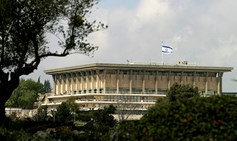
What About Democracy?
Written By: Prof. Mordechai Kremnitzer, Dr. Amir Fuchs
In an op-ed published in Haaretz, IDI Vice President Mordechai Kremnitzer and researcher Attorney Amir Fuchs point out that despite the assault on democratic values witnessed in the outgoing Knesset, "democracy" does not seem to be on the agenda in the current election campaign.

Belief in God is Not the Problem in Israel
Written By: Yair Sheleg
Recently, the findings of the third Guttman-AVI CHAI report—A Portrait of Israeli Jews: Beliefs, Observance, and Values of Israeli Jews—were presented to the public. The findings have drawn much media coverage because they revealed that an overwhelming majority of Israeli Jews believe in God. In an op-ed from <em>Haaretz</em>, IDI Senior researcher Yair Sheleg responds to columnists who were alarmed by the findings regarding belief in God, and argues that what is really of concern is the inverse relationship between this belief and belief in democratic values.

The Democratic Year in Review: The Knesset's Missed Opportunity
Written By: Prof. Yedidia Z. Stern
The period of the Jewish High Holidays is a time of reflection and introspection. In this op-ed, originally published in Yedioth Ahronoth on September 26, 2011, IDI Vice President of Research Prof. Yedidia Z. Stern reflects on the gap that emerged between the agenda of the Knesset and the agenda of the Israeli public during 2010-2011 and expresses hope that the message of the social-economic protest of the summer of 2011 will point the Knesset in the right direction in the year to come.
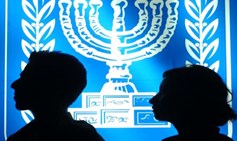
The Founding Vision: Israel as a Democratic State. Period.
Written By: Shulamit Aloni
The question of who is a citizen of Israel is tied to many issues in the forefront of debate in Israel. In this article, guest columnist Former MK Shulamit Aloni focuses on the democratic nature of the State of Israel, and particularly the concept of equality, as the foundation on which citizenship rests, and decries recent racist undercurrents observed in Israeli society, which she sees as contrary to the founding vision of the State.

Anti-Terrorism Legislation in Britain and the U.S. after 9/11
Written By: Yogev Tuval
Democratic countries around the world are struggling to effectively fight terror without compromising basic human rights and freedoms – the essential democratic values. In this article from IDI's Hebrew online journal Parliament, IDI's Yogev Tuval presents an analysis and comparison of post-9/11 anti-terrorism legislation in the United States and Britain, and explains how certain laws threaten democracy.

Israel at 60: On the Road to Democratic Maturity
Written By: Barak Cohen
Barak Cohen discusses how Israel's lack of a constitution manifests itself today as unanswered fundamental questions of seemingly irreconcilable identities. The steps of progress and maturity have to consist of compromises and rationality.

An Israeli Republic, If We Can Keep It
Written By: Yohanan Plesner
Israel must not squander its opportunity for much needed renewal, but first the people need to weigh in and choose a consensual mechanism of constitutional reform
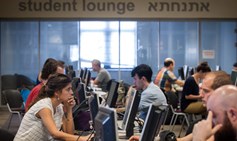
A Moment of Reckoning for the Education System
Written By: Dr. Tammy Hoffman
Israel is not adequately preparing its younger generation to be responsible citizens and must work now to improve its civics education curriculum.
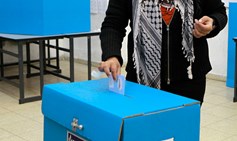
The Voice that Doesn’t Count
Written By: Prof. Yuval Shany
One of the main explanations for the dramatic decline in voter turnout in the Arab Israeli sector in the last elections (49%, versus 63% in the 2015 elections) is the sense that the voice of Israeli Arabs — is a voice that doesn’t count.

The Case for Substantive Democracy
Written By: Yohanan Plesner
As calls for a "majoritarian democracy" gain strength in Israel, IDI's President warns of the dangers associated with a tyranny of the majority, and makes the case for a richer interpretation of democracy, grounded in the principles of liberty, equality and the separation of powers.

'Yes' to a Nation-State, 'No' to a Nationalistic State!
Leaders of the Israel Democracy Institute call for alternative proposal that would place nation-state of the Jewish people on equal footing with democratic obligation to equality for all Israeli citizens.
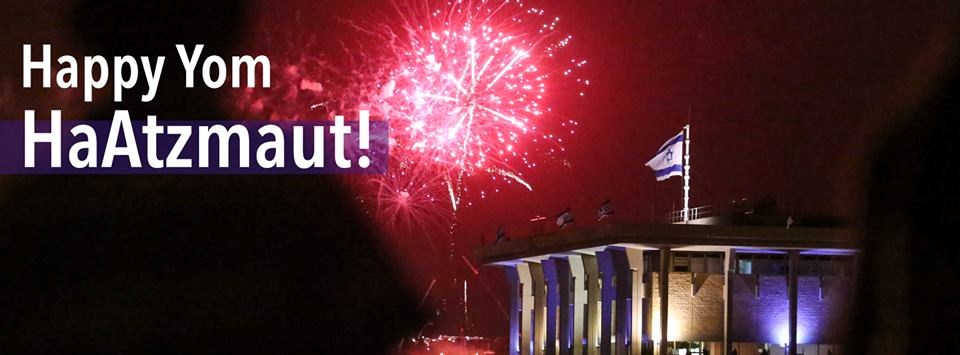
How's It Going?
80% of Israelis are proud to be Israeli; 71% are optimistic about Israel’s future; and 38% see social gaps as a major challenge
Books
Events
- Open Primaries in Israel: Opportunities and Challenges
- 50 Year Anniversary of the Six-Day War: Possible Political Scenarios and their Implications
- Proportionality and Civilian Casualties in Asymmetrical Armed Conflicts: An Interdisciplinary Approach
- The Amnon Lipkin Shahak Program on National Security & Democracy
- Presentation of the 2011 Israeli Democracy Index

